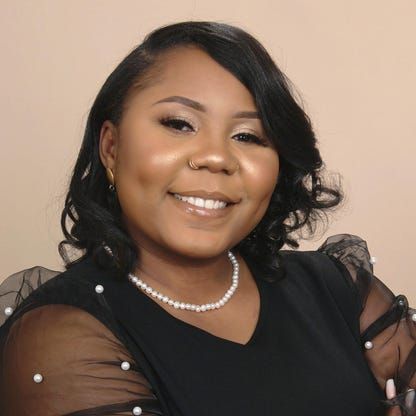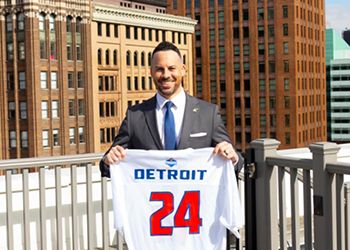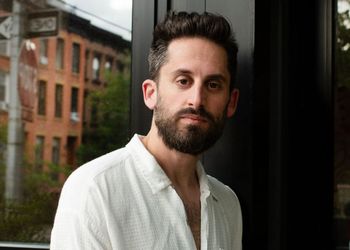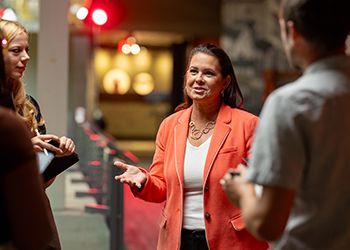Learning to Heal

Learning to Heal
Detroit native and Forbes 30 Under 30 honoree Dr. Sirrita Darby, ’14, ’21, is helping her students and her city find a positive way forward.
June 13, 2023As a high school English teacher in Detroit, Dr. Sirrita Darby witnessed her students experiencing trauma stemming from issues like racism and the threat of community violence. But her pleas to administrators for more counselors were answered with, “There’s not enough money.” Or, “Students need to learn to be tough.”
“That wasn’t good enough for me as an educator,” Darby says. “So, I turned my classroom into a space that would provide students with the healing they needed in school.”
Every Friday, Darby led “healing circles,” where students could talk about their trauma, listen to others and begin to heal together. As word of these circles spread, the group was invited to other schools. When Darby’s students told her they wanted to turn the project into an after-school program, she took the challenge one step further: Why not launch a nonprofit?
Today, that nonprofit, Detroit Heals Detroit, helps local youth develop coping strategies and obtain resources necessary to transform their pain into power. Over the past two years, the organization has hosted community cleanups and a film festival, launched a “healing hub,” helped paint a mural in downtown Detroit and delivered self-care kits to students with items to support their mental health through art and writing.
As the group’s co-founder and executive director, Darby is one of just two “adults” within the nonprofit; everyone else ranges in age from 12 to 21. Darby says it was her MSU experience that laid the foundation for her career guiding a youth-led organization. As an undergraduate, she was the type of young adult she now works with, serving as an intercultural aide, a Black Caucus member, and on the executive board of the university’s Black Student Alliance. As a junior, a policy class opened her eyes to the challenges the U.S. education system faces and inspired her to be a teacher.
“Michigan State not only helped me discover more about our world but it prepared me to go out into that world and make the change I wanted to see,” Darby says.
Those changes include adjustments to political systems that force trauma on marginalized students and make it difficult for them to find healing support. This is why Detroit Heals Detroit considers themselves a social justice organization that does mental health work.
“We believe in combating justice issues and healing the systems that perpetuate harm for young people first,” Darby says. “Many organizations don’t focus on that part. But we need to ensure this trauma doesn’t continue for the next generation, and that’s what makes Detroit Heals Detroit stand out.”
Darby recently made Forbes’ 30 Under 30 list for her work with the nonprofit. She hopes to continue to scale Detroit Heals Detroit, which is already partnering with local schools through professional development workshops, demonstrating their methods to teachers and administrators. In the future, Darby and her team want to develop a social and emotional learning curriculum that can be used in schools, programs and other organizations nationwide.
“Our ultimate goal is to put ourselves out of business,” Darby says. “We want a society where an organization like ours doesn’t have to exist because there is a framework that shows how to handle trauma and healing.”
Contributing Writer(s): Kelley Freund




